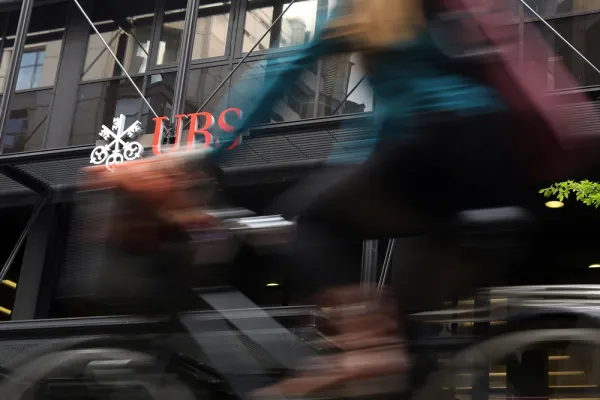Omega Advisors’ Leon Cooperman has a goldilocks view of the market for 2014. In an interview Thursday on CNBC the former Goldman Sachs partner said the market is in a zone of fair valuation at around 1800 on the S&P 500. This is based on his $115 estimate for S&P earnings and a 16 price-to-earnings multiple, which works out to closer to 1840. He says he is not expecting a recession, there is still no competition to equities and individual investors are under-invested.
“Bull markets end from excesses, not from old age,” states Cooperman, who is up 32 percent gross this year. Even so, he feels the market’s surge this year is a little out of whack with the growth in corporate profits and gross domestic product and the consumer price index. Cooperman singled out five stocks he likes: Sandridge Energy, a company that has been the target of activist hedge fund TPG-Axon; Sprint, which is also a big favorite of York Capital Management’s Jamie Dinan, who also appeared on CNBC at the same time as Cooperman; SunEdison, a solar energy company; Monitise, a UK-based play on mobile banking; and Qualicorp, a Brazilian health care company.
—
Are happy days here again for hedge funds? That’s the message Preqin says it is getting from 148 institutional investors with a total of more than $60 billion invested in hedge funds that the firm recently interviewed for a survey. The early results show that 21 percent of investors say their 2013 hedge fund returns exceeded expectations, while another 63 percent said the returns met expectations.
Just 16 percent felt their return expectations were not met, way down from 41 percent who said the same for 2012. According to Preqin’s database, hedge funds posted returns of 10.04 percent through November 30, compared with 8.24 percent in the same period in 2012. “If performance in December continues along the same lines as the rest of the year, hedge funds could be on track to post their highest net returns since 2010,” Preqin states. Interestingly, 29 percent of investors said they are looking for hedge funds to produce high absolute returns. However, 28 percent are looking for consistency of returns while 25 percent want hedge funds to produce strong risk-adjusted returns.
—
Score another one for the activists. Darden Restaurants, seemingly in response to hedge fund Barington Capital Group, on Thursday announced it will execute a tax-free spin-off of its Red Lobster business to shareholders, stop expanding its Olive Garden chain and limit the number of new openings for LongHorn Steakhouse with the goal to lower capital spending by at least $100 million annually. It also said it will stop making acquisitions. The company said it will use the increased cash flow from reductions in capital spending and operating support expenses “to support” dividends, share repurchase and strengthening the company’s credit profile. These are the typical short-term measures activist hedge funds bully companies into making as opposed to investing in the company for the long haul.
“The company expects to announce additional details on its share repurchase program as the separation plans are finalized,” Darden adds in a press release. It pledged that on a combined basis, Darden and Red Lobster will maintain Darden’s current quarterly dividend of $0.55 per share following the spin-off. Interestingly, Darden’s board plans to tie compensation more directly to same-restaurant sales growth and free cash flow. We noted earlier this week that James Mitarotonda’s Barington, which owns 2 percent of the company, made public its case for unlocking the value of the stock. It believes if its recommendations were fully implemented, Darden would be worth somewhere between $71 and $80 per share. Investors, however, were not impressed with Darden’s announcement. The stock closed down 3.65 percent, at $50.99, in part because the company also announced weak quarterly earnings results. On Wednesday Sterne, Agee & Leach lowered its second-quarter same-store-sales estimate for Darden.
—
Overshadowed by the conviction of former SAC Capital Advisors portfolio manager Michael Steinberg, another former hedge fund portfolio manager was convicted Wednesday of an unrelated fraud. Michael Balboa, a former London-based portfolio manager for the Millennium Global Emerging Credit Fund, was found guilty of securities fraud, wire fraud, and investment adviser fraud charges, as well as conspiracy to commit securities fraud and wire fraud for overvaluing the assets of the fund. This firm has no connection to New York City-based Millennium Management, headed by Israel Englander.
The government says Balboa’s overvaluation of a sovereign contingent debt instrument issued by the government of Nigeria caused the fund to overstate its net asset value by about $80 million. He ran the fund from December 2006 until October 2008, when it was shut down. Balboa faces a maximum of five years in prison on each of the conspiracy counts and 20 years in prison on each of the fraud counts. Balboa’s first trial earlier this year ended in a mistrial after the jury deadlocked.
—
Edward Lampert continues to reduce his stake in AutoNation. His hedge fund, ESL Partners, sold nearly 110,000 shares of the auto dealer giant, while Lampert himself unloaded more than 150,000 shares. All of the sales took place in the open market from November 18 to December 17 at prices ranging between roughly $50 and $51, give or take a few cents. The stock, ESL’s second largest holding among just four disclosed U.S. issues, closed Thursday at $51.06, down $0.30.
—
It was almost as fleeting as a one-day sale. Shares of J.C. Penney — which enjoyed a brief surge just before and after Thanksgiving Day — continue to sink, closing down nearly 4 percent to $7.94, its lowest price since early November. Investors had been excited that the ailing retailer reported one good month of results.





